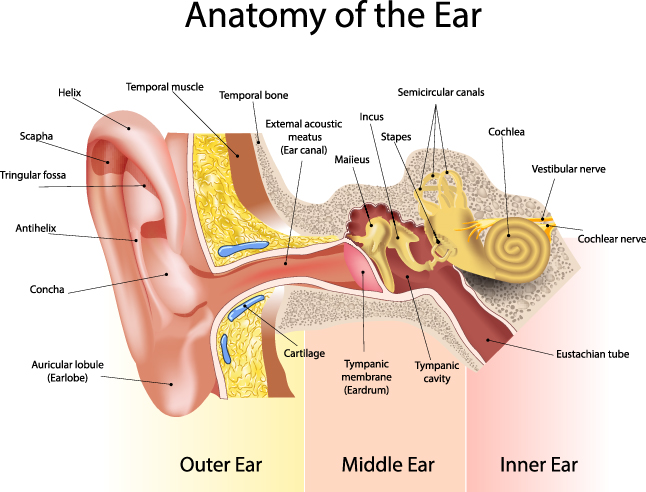Vibration and the Middle Ear - Weekly Blog (2/25-3/1)
 |
| Ear Tubes by Mountain West ENT |
“What effect can very loud music have on your hearing?” In your answer provide specific evidence, including organ names to help substantiate your claim.
Have you ever heard a shrill ringing in your ears? This ringing is due to listening to very loud noises. Believe it, or not, but the major cause of a loss of hearing is listening to loud music. By listening to loud sounds, such as loud music, you can damage your ear hairs, which can impact your hearing forever.
As sound reaches the outer ear, it goes through the ear canal and to the middle ear. The middle ear then turns the sound waves into vibrations go to the inner ear. The eardrum vibrates when sound waves reach the eardrum. This causes the movement of the hammer, anvil, and the stirrup, three incredibly delicate bones in the eardrum. These bound assist the sound as it moves along on its journey to the inner ear. Sound waves come into the inner ear in what is called a vibration and enter the cochlea, which is a small tube in the inner ear. When sound waves reach the cochlea, they cause small hair cells to move. (These hairs are so small that you would need a microscope to see them.) As the hairs on the cells move, they create nerve signals that the brain understands as sound. As the brain processes the sound, you can hear sound around you.
As sound reaches the outer ear, it goes through the ear canal and to the middle ear. The middle ear then turns the sound waves into vibrations go to the inner ear. The eardrum vibrates when sound waves reach the eardrum. This causes the movement of the hammer, anvil, and the stirrup, three incredibly delicate bones in the eardrum. These bound assist the sound as it moves along on its journey to the inner ear. Sound waves come into the inner ear in what is called a vibration and enter the cochlea, which is a small tube in the inner ear. When sound waves reach the cochlea, they cause small hair cells to move. (These hairs are so small that you would need a microscope to see them.) As the hairs on the cells move, they create nerve signals that the brain understands as sound. As the brain processes the sound, you can hear sound around you.
How can listening to music affect your hearing? If you listen to very loud music, the small hair cells move much faster. The tips of this hair can eventually fall off, reducing your hearing to a minimum, and causing loud ringing in the ear. These hairs can eventually grow back, but if you consistently listen to very loud music and they don't grow back, you can have a permanent hearing loss.
Comments
Post a Comment